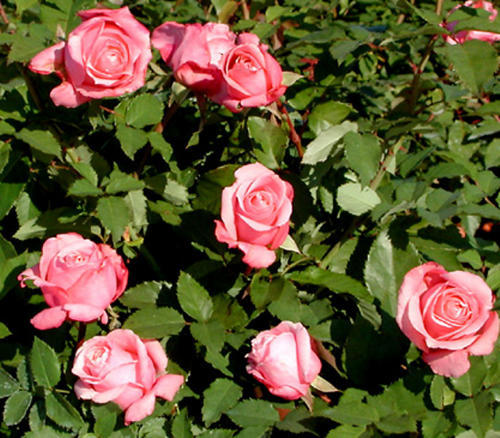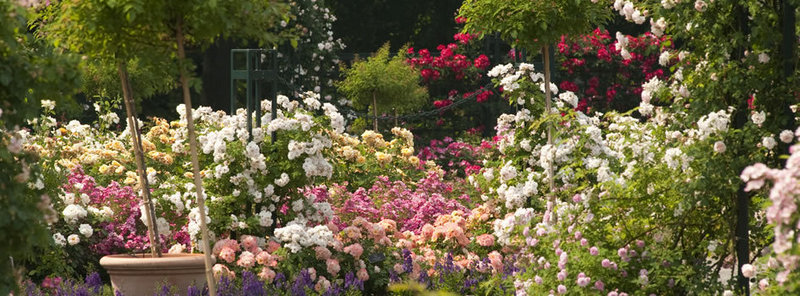The Karl Switzer Rose Circle at Deering Oaks in Portland is now empty of plants, but the city will be filling it with new roses in a month or so.
The rose circle will be taking on a new role: That of a scientific test station for Earth-Kind roses.
The change is coming about for several reasons, said Troy Moon, environmental programs and open space manager for the city’s Parks and Recreation Department.
“We are interested in having a more sustainable garden with less of an environmental impact and less maintenance from a very small environmental team,” Brown said.
On top of those reasons, the rose circle had been a showcase for All-America Rose Selection winners, and that organization went out of business last year.
Anne Pringle, a former Portland mayor who is now president of the Friends of Deering Oaks, said the rose circle is an important part of the overall plan of Deering Oaks, and is the prime feature of the more formal section of the park — so it is important to preserve it.
While checking out sources for the roses in the study, the city has done some repair work on the paths in the rose circle.
Peter Kukielski of the Peggy Rockefeller Rose Garden at the New York Botanical Garden is working with the city and Friends of Deering Oaks to get the new Portland garden started.
Earth-Kind started about 15 years ago at Texas A&M, Kukielski said, and were part of a 10-year trial.
“They planted about 100 varieties,” he said. “The first year, (the plants) just got water. Years 2 through 10, they just got nothing: No fertilizer, no pesticides, no water.
“If you discover roses that can do fine on their own for 10 years, are still flourishing and still blooming, that is a good rose.”
Naturally, weather in Texas is a bit different from the weather in Maine. Kukielski is director of the Northeast Trials for Earth-Kind, and in addition to the garden in New York City, there is a similar garden in Naugatuck, Conn.
But the Portland garden will be the one that is farthest north so far.
The rose circle will look a little different from what it did before, aside from the different rose varieties.
In its previous life, the circle was home to more than 600 rose plants. Because of requirements that the rose bushes be 6 feet apart for the trials, the circle will contain fewer than 200 plants.
Pringle said the Portland garden will have more dwarf roses than some of the other Earth-Kind trial gardens across the country.
The roses are not pruned — although dead branches will be removed — under the rules of the trial.
“We didn’t want them to be getting 8 to 9 feet tall,” she said.
Kukielski said some of the roses coming to Portland will have been tested in other parts of the country and proven themselves in other climates. And some roses will be new to the Earth-Kind program.
Some of the roses in the programs are already on the market. The Portland garden is scheduled to have three roses from the popular Knock Out, Drift and Oso Easy series that have been selling well.
Pringle and Moon said the old rose garden required a lot of chemical fertilizer and pesticides, and it will be good to get rid of those.
Pringle took a photograph of the rose circle last year after it had gone a couple of weeks without pesticides, and the roses were nearly stripped of their leaves.
Moon said Japanese beetles — a big problem for roses — are attracted to lighter colors, and that a lot of the roses in the study have a natural resistance to the beetles.
Pringle noted that the plans are to have specimens of 48 varieties in the garden, and Moon added that the plants will be clearly labeled.
That way, if you walk through the garden and see a rose you just have to have for your home garden, you will be able to go to your local garden center and ask for it.
Tom Atwell has been writing the Maine Gardener column since 2004. He is a freelance writer gardening in Cape Elizabeth and can be contacted at 767-2297 or at:
tomatwell@me.com
Send questions/comments to the editors.




Comments are no longer available on this story